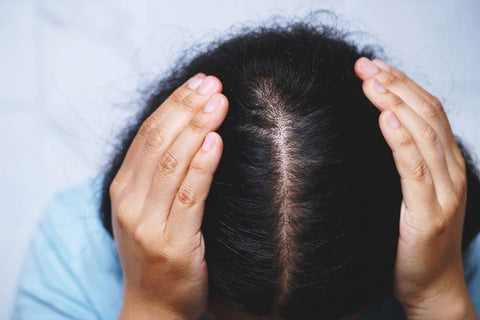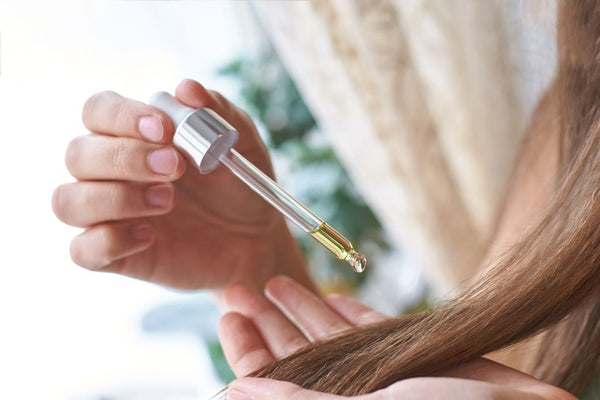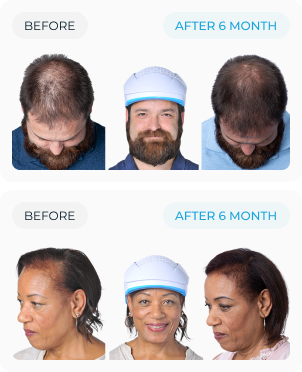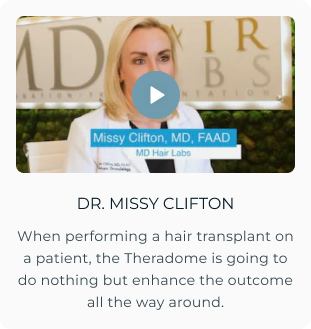Dealing with an itchy scalp and worried about hair loss? You’re not alone—and there’s good news: help is available. Itchy scalp and hair loss often go hand in hand and affect both men and women across the globe. In this comprehensive guide, we’ll explore the causes, symptoms, and proven solutions to help you take control and find relief.
But what exactly is itchy scalp hair loss? Itchy scalp hair loss is a condition where ongoing scalp irritation is paired with noticeable hair thinning or shedding. It can be frustrating, uncomfortable, and even alarming. That’s why understanding the root causes is key to choosing the right treatment.
Are Itchy Scalp and Hair Loss Connected?
Yes, an itchy scalp and hair loss can sometimes be connected. Persistent itching may lead to sudden hair loss, and several conditions are related to these symptoms. Common examples include tinea capitis (scalp ringworm) and lichen planopilaris—both of which can cause itchiness and hair loss as main symptoms.
Itching is often a result of inflammation, which can weaken hair follicles over time. When the follicles become damaged or inflamed, hair growth slows or stops, eventually leading to thinning or shedding. Additionally, frequent scratching or rubbing of an itchy scalp can cause physical damage to both the hair and scalp, contributing to breakage and hair loss.
In some cases, the sequence is reversed. Hair loss can lead to the development of scar tissue, which might trigger scalp itchiness. Conversely, chronic itching can lead to excessive scratching, damaging the scalp and follicles, and ultimately resulting in hair loss.
What Causes Itchy Scalp And Hair Loss?
An itchy scalp and hair loss can happen separately, but they’re generally linked by underlying conditions. Allergic reactions to hair products, fungal infections, and inflammation of the hair follicles can all trigger scalp irritation—and, over time, may damage follicles and lead to hair thinning or shedding.
Here are some causes of itching scalp and hair loss:

Scalp Conditions
Various scalp conditions are among the primary culprits of an itchy scalp and hair loss. Issues like dandruff, atopic dermatitis, and psoriasis can cause itching and inflammation, which disrupts the normal hair growth cycle.
- Dandruff often causes a dry, flaky, and itchy scalp. While dandruff itself doesn’t usually lead to hair loss, excessive scratching can damage hair follicles and result in temporary shedding if the condition is left untreated.
- Atopic dermatitis, a type of eczema, leads to red, itchy rashes on the scalp. Though it doesn’t directly cause hair loss, the intense itching may cause frequent scratching, which can weaken or damage hair follicles over time.
- Psoriasis is an autoimmune condition that causes thick, red patches with silvery scales. When psoriasis affects the scalp, scratching at the scaly plaques can lead to hair loss due to inflammation or damage to the hair follicles.
Hair Care Products
The products you use on your hair and scalp can have a big impact on scalp health and hair retention. Shampoos with harsh ingredients, heavy styling products, or frequent use of heat tools can irritate the scalp, leading to itchiness and causing temporary hair loss.
Allergic reactions to certain hair products can also trigger inflammation of the scalp and hair follicles, resulting in itching and discomfort. While most reactions are mild and short-lived, ongoing irritation can damage the hair follicles, increasing the risk of hair shedding or thinning.
Folliculitis
Folliculitis is a common skin condition that occurs when hair follicles become inflamed, often due to a bacterial or fungal infection. If left untreated, the inflammation can worsen, leading to an itchy scalp and even hair loss in severe cases.
It can affect people of all ages and typically appears as red, pimple-like bumps or small boils on the scalp. These lesions can be itchy, tender, and sometimes painful, especially if the infection spreads or recurs frequently.
Lichen Planopilaris
Lichen planopilaris (LPP) is a rare inflammatory condition that targets the hair follicles and can lead to scarring and permanent hair loss. It is considered a form of lichen planus that affects the scalp rather than the skin or mucous membranes.
LPP causes inflammation around the hair follicles, which damages them over time. As the condition progresses, it can destroy the follicles entirely, resulting in irreversible hair loss if not treated early.
Tinea Capitis
Tinea capitis, commonly known as ringworm of the scalp, is a contagious fungal infection that often causes scalp itchiness, redness, and hair loss. It typically presents with round patches of hair thinning or baldness, along with a scaly rash that might appear red, gray, or silver. Small black dots (broken-off hairs at the scalp) are also a common sign.
If left untreated, tinea capitis can lead to inflammation, scarring, and permanent hair loss in severe cases.
Chronic Stress
Chronic stress can significantly impact scalp and hair health. When the body is under prolonged stress, it produces elevated levels of cortisol—the primary stress hormone. High cortisol levels can lead to scalp sensitivity or itchiness and may interfere with the natural hair growth cycle.
Stress can also trigger inflammation and push hair follicles into a resting phase (known as telogen effluvium), resulting in increased hair shedding and noticeable thinning.
Poor Diet
Believe it or not, your diet plays a major role in the health of your scalp and hair. Nutritional deficiencies, particularly iron, zinc, protein, and key vitamins like A, D, and B-complex, can contribute to a dry, itchy scalp and lead to hair loss or thinning.
Without adequate nutrients, the body might struggle to support healthy hair growth, causing follicles to weaken or enter a resting phase. Maintaining a well-balanced diet rich in essential vitamins and minerals is crucial for keeping your scalp healthy and promoting strong hair.
Radiation Dermatitis
Radiation dermatitis is a common side effect of radiation therapy, especially in individuals receiving treatment to the head or scalp. This condition can cause the skin to become irritated, inflamed, dry, and itchy. Over time, these symptoms may lead to hair loss in the affected area.
Skin reactions usually begin to appear 2 to 3 weeks after starting radiation therapy and might continue throughout the course of treatment. The severity can vary depending on the dose, frequency, and individual sensitivity.
Symptoms of Itchy Scalp and Hair Loss
A persistently itchy scalp combined with noticeable hair loss can signal an underlying issue that needs attention. Various scalp conditions cause irritation, inflammation, and damage to the hair follicles, leading to shedding or thinning. Below are some symptoms to watch for:
- Scaly or crusty patches: Thick, smooth, or crusty scales on the scalp are a common symptom in conditions like psoriasis or seborrheic dermatitis. These patches are often intensely itchy and may bleed if scratched. Repeated scratching can damage hair follicles, leading to bald spots.
- Flakes: White, yellow, or gray flakes—easily mistaken for dandruff—can indicate an irritated or dry scalp. Flaking is commonly associated with inflammation, fungal infections, or product buildup and might accompany hair thinning or loss.
- Small white bumps on hair shafts: These may be nits (lice eggs), which stick to the hair near the scalp. A medical professional can confirm the presence of lice through a close examination.
- Raised bumps or pimples: Tiny red or flesh-colored bumps, sometimes filled with fluid, might appear due to folliculitis, allergic reactions, or scalp infections. These bumps can be itchy and tender, and excessive scratching can worsen the condition and cause hair loss.
- Red spots and pus-filled lesions: Red, inflamed areas accompanied by pus-filled bumps and hair loss may indicate a fungal infection such as tinea capitis (scalp ringworm). These symptoms require prompt medical treatment to prevent permanent hair loss.
- Dry, red, irritated Scalp: A dry and reddened scalp is a clear sign of inflammation. This can lead to itchiness and flaking, and repeated scratching may weaken hair strands, resulting in excessive shedding. Redness might be widespread or appear in patches.
- Sleep disturbances: Persistent scalp itchiness can make it difficult to fall or stay asleep. The discomfort, combined with anxiety over hair loss, can create a vicious cycle of stress, sleep deprivation, and worsening symptoms.
Home Remedies for Itchy Scalp Hair Loss
Several natural and at-home remedies can help soothe an itchy scalp and reduce hair loss caused by irritation or inflammation. While none of these methods are clinically proven to regrow hair or stop hair loss, they may support overall scalp health, which can enhance the effectiveness of clinically proven treatments such as low-level laser therapy (LPT), Finasteride, or Minoxidil. Here are some home remedies:

1. Use Essential Oils
Essential oils like coconut oil, tea tree oil, and lavender oil have anti-inflammatory and antimicrobial properties that can help soothe an irritated scalp. While not proven to stimulate hair growth directly, they can improve scalp conditions that contribute to hair loss.
2. Apply Diluted Apple Cider Vinegar
Apple cider vinegar has natural antibacterial and antifungal properties. When diluted with water, it can help rebalance the scalp's pH, reduce itching, and fight conditions like dandruff and folliculitis.
3. Maintain Scalp Hygiene
Proper scalp hygiene is essential to prevent oil buildup, product residue, and infections. Excess sebum can clog pores and lead to scalp itching and inflammation. Use a mild, sulfate-free clarifying shampoo as needed.
4. Eat a Nutrient-Rich Diet
What you eat partly determines your hair health. Include foods rich in protein, iron, zinc, omega-3 fatty acids, and vitamins (A, D, E, and B-complex). Great choices include fish, eggs, nuts, spinach, and soy-based foods or drinks.
5. Baking Soda Scalp Scrub
Mix baking soda with a little water to form a paste, and gently massage it into your scalp. Rinse thoroughly. Baking soda can act as a natural exfoliant, removing dead skin cells and reducing itchiness. Use this remedy sparingly, as overuse can dry out the scalp.
6. Use Anti-dandruff Shampoos
If dandruff is the main cause of your itchy scalp, look for shampoos with active ingredients like selenium sulfide, zinc pyrithione, ketoconazole, or coal tar. These help control the yeast or fungal activity on the scalp that often leads to dandruff.
When to See a Doctor
While occasional scalp itchiness or mild hair shedding can sometimes be managed at home, certain symptoms may indicate a more serious underlying condition that requires medical attention. You should consult a healthcare provider or dermatologist if you experience:
- Itching that disrupts sleep or daily activities
- Scalp pain or a burning sensation
- Crusty or scabbed patches on the scalp
- Sudden hair loss or bald patches
Theradome for Promoting Hair Growth
Dealing with an itchy scalp and hair loss can be frustrating, but understanding the root causes is the first step toward effective treatment. While home remedies such as essential oils, apple cider vinegar rinses, and good scalp hygiene can help relieve symptoms, persistent or worsening issues should be addressed by a medical professional.
For those seeking advanced treatment options, the Theradome laser hair growth helmet offers a clinically backed, non-invasive solution. This FDA-cleared medical device uses low-level laser therapy (LLLT) to stimulate hair follicles, increase blood circulation in the scalp, and encourage natural hair regrowth.
Theradome is designed as a hands-free device, making it convenient and easy to use in the comfort of your home. Theradome is the only company out there with its own custom lasers that deliver 680 nanometers of light. This type of laser light goes deep enough into the scalp to reach and stimulate the hair follicles. Once it gets there, it helps energize them — and studies have shown it can actually stop hair loss and help regrow hair. The device is often recommended for individuals experiencing androgenetic alopecia (female or male pattern baldness) or those in the early stages of hair thinning.
Theradome provides a promising option for those looking to support hair health without invasive procedures or prescription medications.

























